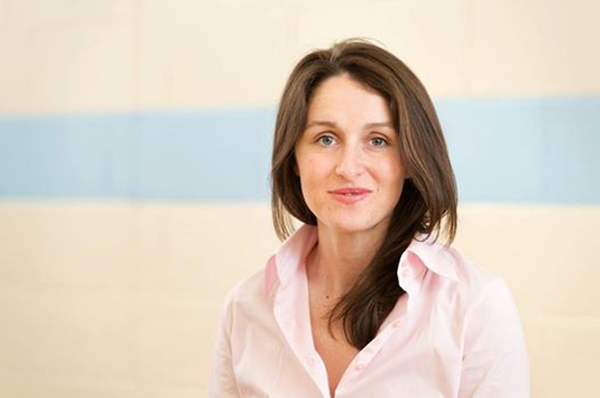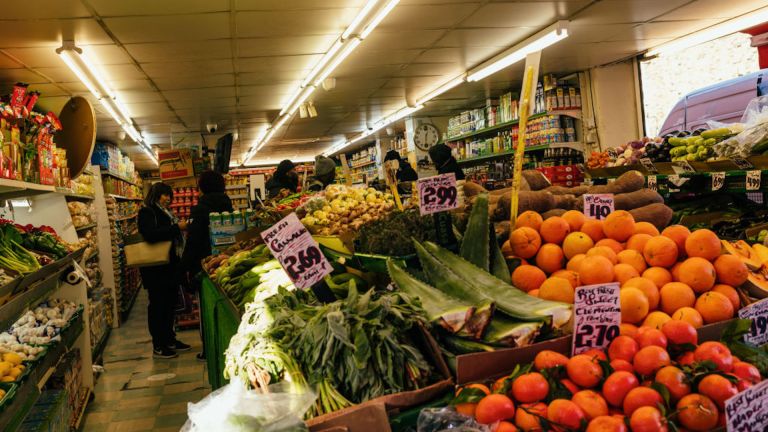The first groups running will be young carers. We’re working with a housing association who are connecting us with some young women, some of whom have been homeless.
What else do you have planned for 2020?
We’ll also open the childcare centre we’ve taken over. We’re not sure what it will look like yet, but it’s the same as our decision to focus on food – the women we work with say these are the barriers they come up against when trying to get on with their lives. We’re talking about austerity, zero-hour contracts – these things hit women hard. We want to take as many of those barriers down as possible.
Caledonia Cremation
Can I afford to die? With the average funeral now costing well over £4,000, this is the grim question facing many people living in poverty. The funeral industry in Britain is worth £2bn a year and the average cost of a funeral has increased by 114 per cent since 2004. In 2019, The Big Issue uncovered the scandal of people without an income who were left with thousands of pounds of debt when the DWP’s funeral expenses payment failed to cover the cost of their loved-one’s ceremony. Scotland’s first not-for-profit funeral director Caledonia Cremation represents an alternative to the predatory elements of the funeral industry, offering cremations without an accompanying service for £995. Any profits the business makes are reinvested in helping people in Scotland’s poorest communities to cope with bereavement. Caledonia Cremation also runs a helpline offering advice to anyone on funeral costs, and campaigns for fairness in funerals.
Antonia McGrath, Lisa Van Holsteijn, educate
Founded in March 2017 by Antonia McGrath and Lisa van Holsteijn after they spent a year volunteering as teachers in Honduras, the entirely volunteer-run educate project rejects traditional Western aid mentalities, instead listening to what people want and directing their resources in creative ways. Having met up again at university in Amsterdam following their Honduras placements, the two women realised they shared an ambition to educate youngsters in Honduran communities, and become a force for sustainable, locally rooted change in the region. They now operate with a team of six in Amsterdam and 10 in Honduras, funded by a mix of individuals, grants from foundations and trusts, and their own fundraising efforts. The pair established a library network in five schools, sharing books on rotation, and organise literacy activities to bolster community collaboration and encourage reading. Their goals include setting up a youth hub and establishing a library.
Sharewear
With a focus on practical support, Nottinghamshire charity Sharewear is helping people in crisis in the county who urgently need clothing, shoes and bedding for reasons that include attending a job interview, training or school. People are referred to the organisation for a variety of reasons – they may be in debt or suffering mental ill health, or they may be homeless, refugees or asylum seekers. Among the bodies that refer people to Sharewear are charities, children’s centres, foodbanks and homeless organisations. Established in 2014, the charity is now run by volunteers
who sort donations, carry out outreach and deliver parcels
where needed.
Advertising helps fund Big Issue’s mission to end poverty
Poverty2Solutions
Poverty2Solutions are striving to give those living in poverty a voice in the decision-making and policy-making that affects them. It’s a coalition of three groups – ATD FOURTH WORLD, Dole Animators and Thrive Teesside – working together to use their first-hand experience of living in poverty to come up with solutions to how it can be fixed. Academic Ruth Patrick works with Poverty2Solutions to help bring their ideas to fruition.
The Big Issue: What have Poverty2Solutions been up to?
Ruth Patrick: We run a big campaign called Do Your Duty for Equality. It’s all about including the voices of people with experience of poverty in decision-making. That campaign launched at the Labour Party Conference last year and the group have had meetings with the shadow cabinet. Making socioeconomic status a protected characteristic featured in the Labour manifesto. It’s to stop discrimination against people in poverty.
How important is it to have that direct experience of poverty?
It’s critical. The voices of people in poverty are still so absent from policymaking and political debate. We want to change that and Poverty2Solutions are taking on that challenge. One of the areas that we will be looking at in the next year or two will be Universal Credit. That’s an example of policy-making done without experience. If they had engaged with and worked with people with experience they would have told policymakers all the reasons and all the flaws in the policy. You could see them from the beginning. There’s a trend where people in poverty, suffering homelessness or addiction or whatever are asked to share their story and then the conversation stops there.
What are the plans for 2020?
Advertising helps fund Big Issue’s mission to end poverty
The main thing would be trying to pursue this socioeconomic duty. For us, it’s about collaborating, it’s not about saying we can do this all. It’s about forging partnerships and we’re open to more partnerships, especially in Scotland and Wales.
Food poverty heroes
It’s a scandal that people are going hungry in the UK. A decade of austerity has meant there are now more foodbanks than McDonald’s restaurants, with skyrocketing demand for them.
The Big Issue spent the summer investigating holiday hunger – when parents struggle to cover the cost of an extra meal in the school holidays – and among the shocking statistics and stories we found inspirational people who are doing their utmost to ensure the most vulnerable people stay fed.
Professor Greta Defeyter is the director of Healthy Living, a research lab at Northumbria University, and is a leading academic who is at the forefront of the fight against holiday hunger, advising policymakers on how to tackle the problem.
Emma Lewell-Buck is also lobbying Westminster for change. The South Shields Labour MP joins Prof Defeyter, the Archbishop of Canterbury Justin Welby and a host of politicians and charities in Feeding Britain. The group is innovating new approaches to alleviate hunger.
But there are already ways to tackle hunger that may not immediately spring to mind. Take, for instance, how football fans around the country are making the most of the massive crowds attending matches in the top divisions. Fans Supporting Foodbanks on Merseyside and NUFC Supporting Foodbanks in Newcastle are leading the way not only in collecting food but also running community projects to help those who are being failed by the system.
Advertising helps fund Big Issue’s mission to end poverty
The Welcome Centre in Huddersfield are also innovators. We gave them a platform in the magazine last summer before returning to hear how they used machine learning to predict when users are going to become dependent on their service to offer extra support.
Another foodbank leading light is Sabine Goodwin. While the 1,200 foodbanks the Trussell Trust supports grab the headlines, that number accounts for around a quarter of the total in the UK. Goodwin flies the flag for the Independent Food Aid Network that works so hard to feed people and is working to prevent foodbanks becoming normalised by society.
Clara Widdison will be kicking off 2020 by playing a major role in the first-ever London Children’s Food Insecurity Summit as part of her day job with the charity Mayor’s Fund for London. This month’s summit will cap a busy period for the tireless campaigner, who spent December arranging hampers for luxury goodies for food-insecure families in London as part of her Hamper Exchange side project.
Meanwhile, Zambian Masitano Sichone has put his Newcastle University e-business degree to immediate good use by working to keep foodbank shelves stocked. He won the Duke of York Young Entrepreneur of the Year Award for his work on Spareable, an app that lets community foodbanks send out notifications to tell people when essential items are running low as well as enabling foodbanks to connect with volunteers.
With no sign of the five-week wait for Universal Credit being scrapped – a primary driver of food poverty according to the Trussell Trust charity – hunger will remain a scourge on the UK in 2020. But if anyone is going to move us a step closer to feeding Britain’s most hungry, it will be these campaigners.











